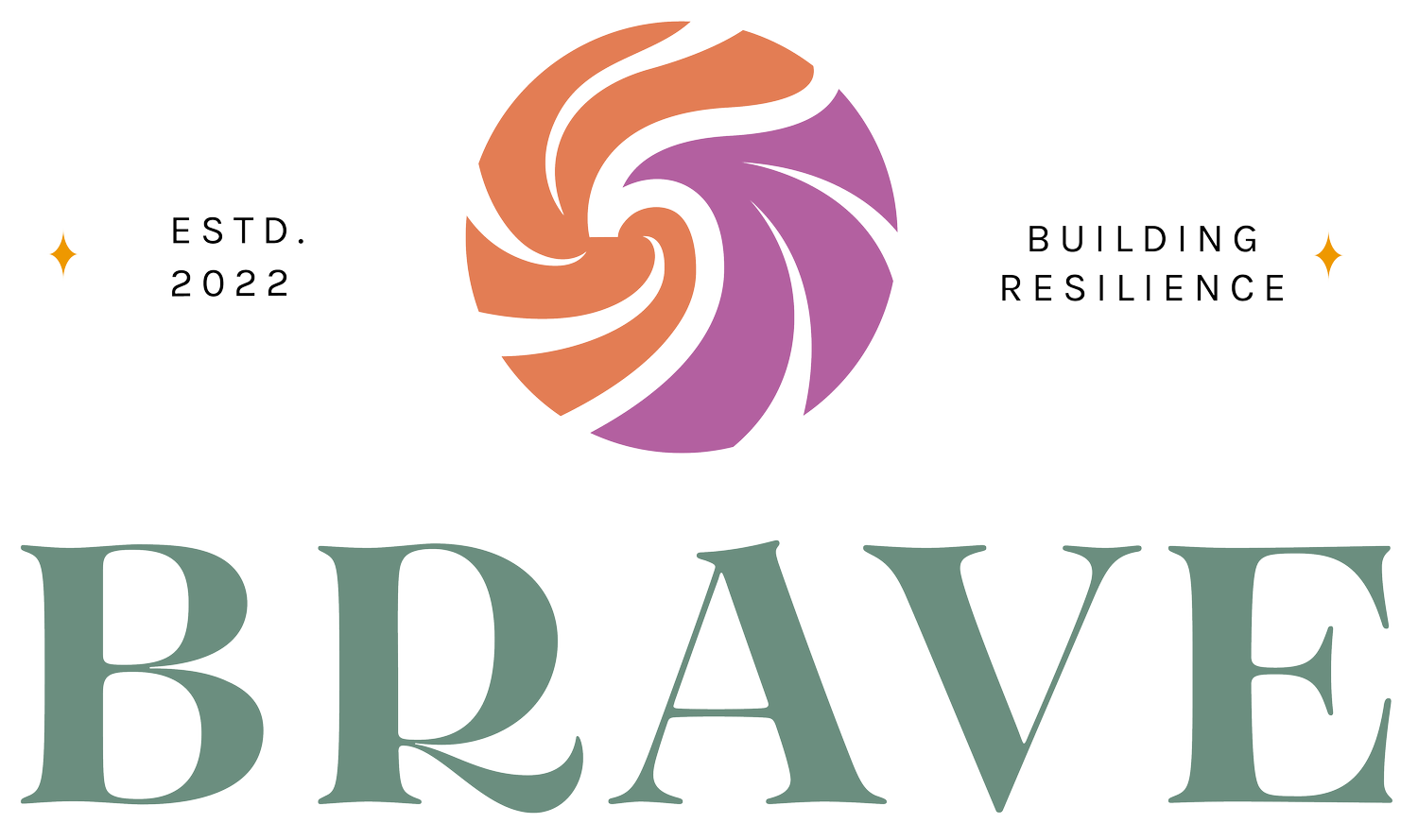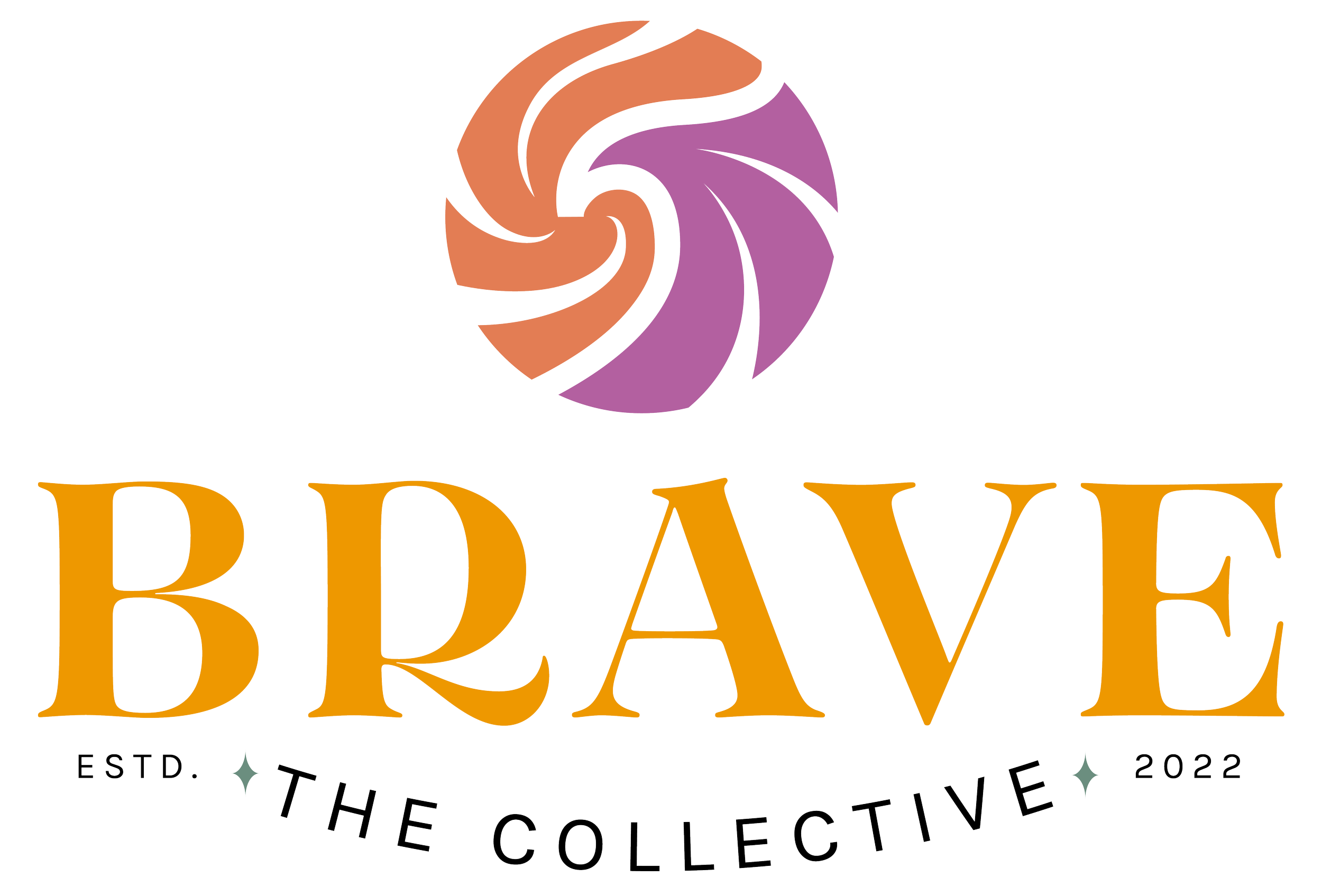I’m not strong enough to be a trauma therapist if I name my vicarious trauma…
Hi there! We are 1 week closer to doors opening on your early enrollment period to the BRAVE Trauma Therapist Collective and I’m so excited to welcome you in!
Today I want to talk about how our fear of naming vicarious trauma actually gets in the way of our ability to heal from it and prevent future burnout.
Being a mental health professional can be so confusing - all day long we’re asking people to tell us about their feelings while we keep a poker face and respond with empathic MmHmmms.
Now, add being a trauma therapist to that mix, and there are so many messages that tell you to suck it up, to just deal with it.
Messages that ultimately tell us the only way we can do this work is if we are strong enough to be hardened to it.
If you’re lucky, you’ll get a supervisor who asks you how a case made you feel, but then you have to be vulnerable or even say “I don’t know” when you’re just trying to finish the rotation.
Then, once you’re licensed, there are so few places to process what it’s like to do this work that we eventually come to believe we’re better off not saying anything anyway.
These isolating experiences, unrealistic expectations of mental health providers (“you’re a therapist so you must have it all together!”), the intensity with which we were trained to suppress our emotions in session has a clear natural consequence -
If I name my vicarious trauma, if I tell people it’s hard to do this job, then they’ll think I’m weak, not cut out for this work, not good enough.
This is our trauma therapist stuck point or negative cognition - it’s that thing we tell ourselves in our darkest moments, even when we know it’s not very realistic and definitely not helpful.
Are you ready to take a leap to move beyond this stuck point?
Let’s look at this belief through the lens of trauma therapy.
For simplicity’s sake, let’s say the belief is, “If I name my VT, it means I’m not strong enough to do trauma work.”
If a client came to me with this kind of stuck point or negative cognition, I would probably start by teaching them how beliefs like this serve a purpose - to avoid the trauma and stress that bothers us.
That, even though it’s not necessarily a helpful thought, it does serve a purpose to avoid feeling the emotions that we fear.
As a trauma therapist, you too probably fear certain emotions, especially ones that make you feel helpless or ineffective in your job.
So where did this belief amongst helping professionals come from? Why did this narrative about feelings being dangerous become so internalized?
Much of it is rooted in survival skills learned generations ago that simply no longer serve us. Let’s think back to Freud - during the height of his career, he experienced World War I and then, in the last year of his life, he had to flee Austria to escape Nazi persecution.
This was the context for many of the founding theorists in psychology, so their reality was that if you weren’t always on guard, you were truly in danger.
Add to that the “blank slate” approach of many theoretical orientations - even today we are taught to not share our emotional reactions with our clients!
Now, I’m not asking you to tell your clients how hard this work is, but being a blank slate in session translates to interactions with our colleagues too.
We all stand around the “water cooler” and sure, we might complain about our job, but god forbid we actually say that we are struggling.
I’m here to tell you that it’s ok to say you’re not ok.
I want all trauma therapists to reclaim that phrase for ourselves, so we can finally be set free from arbitrary rules saying we can’t ask for help or reach out when our job gets really tough!
So, where do you get to wave this flag? To push back against the belief that you can’t share your true emotions and reactions to this work?
If you’re one of the lucky few, you have a work environment or consultation group where you can just come on out and say it.
If you’ve been where I have been, hiding vicarious trauma is your main coping mechanism when you go to work.
That’s why I’m so excited we’re going to be working together inside the BRAVE Trauma Therapist Collective as it is my mission to help all trauma therapists know that they deserve to be cared for too.
Don’t forget that as a waitlist member, you get early access starting October 10th and a special bonus when you enroll before October 14th! I’ll be talking more about that bonus next week, so stay tuned.
And regardless of when you join the Collective, you will be a founding member, meaning you will be locked in at $37 a month or $400 a year for the lifetime of your membership. It’s so important to honor the members who begin this journey with me and who want to be a part of making BRAVE accessible, supportive, and safe for all trauma therapists.
I can’t wait to start working with you!

